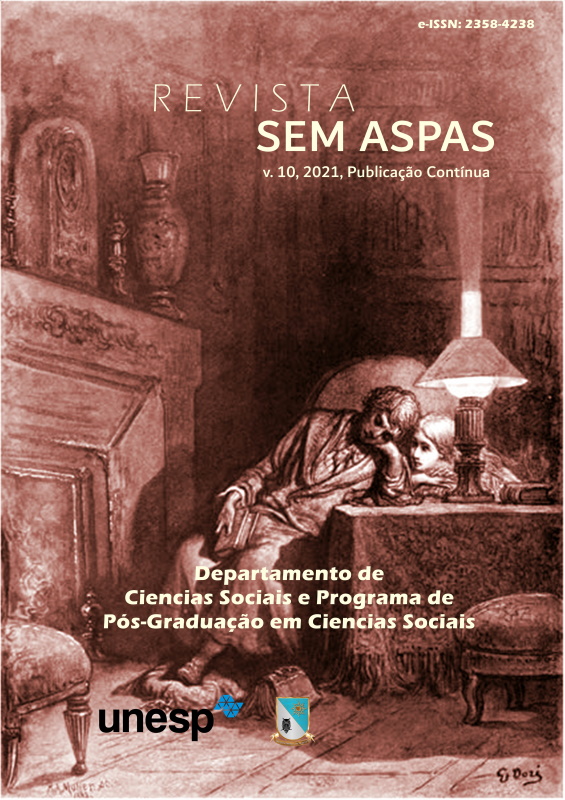Auguste Comte revisited: positivism, sociological theory and social intervention
DOI:
https://doi.org/10.29373/sas.v10i00.15744Keywords:
Science, Positivism, Sociology, Capitalism, Social conflictAbstract
In the social sciences, a classic work is a reference for future generations of specialists who enjoy from its theoretical, analytical and methodological contributions in the development of new research and permanent improvement of knowledge. Among the classics of sociology, in particular the theorists of the emergence phase of this social science, the sociological thought of Auguste Comte is considered of less relevance compared to Karl Marx, Emile Durkheim e Max Weber. However, when analyzing the intellectual trajectory of Auguste Comte, this article argues that his theories and analyses were fundamental for the constitution and further development of sociology.
Downloads
References
ARON, R. As etapas do pensamento sociológico. São Paulo: Martins Fontes, 1997.
COMTE, A. In: Os Pensadores. São Paulo: Abril Cultural, 1978.
FORTE, M. A. Comte: La utopia del orden. Revista Conflito Social, Buenos Aires, v. 1 n. 00, p. 7-23, nov. 2008.
HOBSBAWM, E. A Era do Capital. Rio de Janeiro: Paz e Terra, 1982.
IGLÉSIAS, F. A revolução industrial. São Paulo: Brasiliense, 1986.
MOORE, B. As origens sociais da ditadura e da democracia: senhores e camponeses na construção do mundo moderno. Lisboa: Edições Cosmos, 1967.
TACUSSEL, P. Augusto Comte: a obra vivida. Revista Logos, Rio de Janeiro, v. 6, n. 2, p. 16-21, nov. 1999.
TARDEL, M. I. Recordando a Comte. Revista de Sociologia, Santiago de Chile, n. 5, p. 9- 18, jan. 1990.
TORRES, M. A. El orden social in el pensamiento de Comte. Em Tese, Florianópolis, v. 7, n. 2, p. 259-279, jul./dez. 2020.
VEGA, M. L. La filosofia politica de Comte y su proyeto social. Ideas y Valores, Bogota, v. 40, n. 85, p. 71-90, ago. 1991.
Published
How to Cite
Issue
Section
License
Copyright (c) 2021 Revista Sem Aspas

This work is licensed under a Creative Commons Attribution-NonCommercial-NoDerivatives 4.0 International License.
Os manuscritos aceitos e publicados são de propriedade da Sem Aspas. Os artigos publicados e as referências citadas na revista Sem Aspas são de inteira responsabilidade de seus autores.








